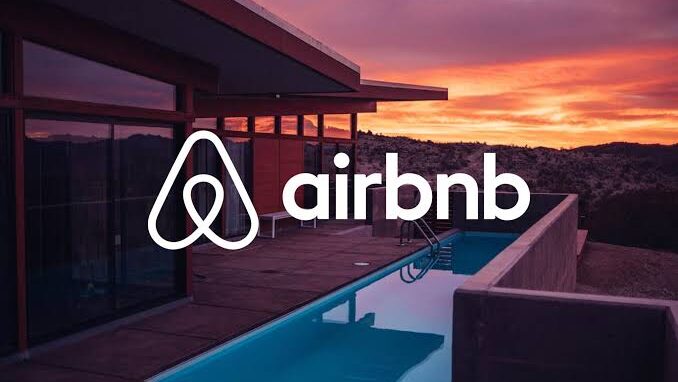In recent years, the travel and hospitality industry in the United Arab Emirates (UAE) has experienced a significant transformation, with Airbnb leading the charge in providing alternative accommodation options for tourists and residents alike. Known for its innovative business model, Airbnb has revolutionized the way people book lodging, moving away from traditional hotels to more personalized and unique stays in private homes, apartments, villas, and even unconventional spaces.
The UAE, with its global appeal as a luxury destination, has seen a surge in demand for short-term rental properties, thanks in part to Airbnb’s platform, which connects hosts with guests looking for unique and affordable experiences. In this article, we explore the impact of Airbnb in the UAE, its growing role in the local economy, and how the platform is shaping the future of tourism in one of the world’s most vibrant and diverse countries.
The Rise of Airbnb in the UAE
Airbnb’s entry into the UAE market marked a shift in the country’s travel and tourism industry. Traditionally, the UAE’s hospitality sector was dominated by luxury hotels and resorts, with global chains like the Burj Al Arab, Atlantis the Palm, and the many five-star hotels along the Dubai Marina leading the charge. However, with the rise of Airbnb, travelers now have access to a broader range of options, from budget-friendly apartments to luxurious beachfront villas.

The UAE’s rapid economic growth, coupled with its world-class infrastructure, has made it an ideal location for Airbnb’s business model. The country’s increasing focus on tourism, along with its openness to international visitors, has created an environment in which short-term rental services like Airbnb can thrive.

Meeting the Demand for Diverse Accommodation
One of the primary reasons for Airbnb’s success in the UAE is its ability to meet the diverse needs of travelers. The UAE attracts visitors from all over the world, each with different tastes, budgets, and expectations. While some travelers prefer the opulence of luxury hotels, others seek the more affordable and flexible accommodations offered by Airbnb hosts.

From spacious apartments in downtown Dubai to charming villas in the serene desert landscape, Airbnb provides a wide variety of options that cater to different preferences. This flexibility allows visitors to find accommodations that align with their travel styles, whether they’re visiting for business, leisure, or long-term stays.
Moreover, Airbnb offers an authentic local experience that hotels often cannot match. Many Airbnb hosts provide guests with insider knowledge about the city, including recommendations for hidden gems, local restaurants, and off-the-beaten-path attractions. For travelers looking to immerse themselves in the culture of the UAE, Airbnb offers a more personalized and intimate alternative to traditional hotel stays.
The Economic Impact of Airbnb in the UAE
Airbnb’s growing popularity in the UAE has not only provided tourists with more affordable and unique lodging options, but it has also contributed significantly to the local economy. The platform creates new revenue streams for property owners and hosts, offering them the opportunity to monetize their unused spaces.
Empowering Hosts and Entrepreneurs
For many UAE residents, hosting on Airbnb has become a lucrative business opportunity. Property owners and renters can list their homes, apartments, or even individual rooms on the platform, earning additional income by hosting travelers from around the world. This has opened up entrepreneurial avenues for individuals looking to supplement their income or start small hospitality businesses.
In some cases, Airbnb hosts have transformed their properties into successful guesthouses or boutique rental services, offering tailored services that reflect the culture and lifestyle of the UAE. This has resulted in the growth of a micro-economy within the UAE’s hospitality sector, with hosts benefiting from the global reach of the Airbnb platform.
Boosting Local Businesses
In addition to benefiting hosts, Airbnb has a ripple effect on other sectors of the UAE economy. As more tourists stay in Airbnb properties, they tend to spend money on local services such as restaurants, transportation, and excursions, benefiting small businesses that might not otherwise receive as much attention from large hotel chains.
The influx of international tourists through Airbnb also supports industries such as retail, tourism, and entertainment. Many Airbnb guests seek unique experiences, such as cultural tours, desert safaris, or visits to local markets, which in turn generates business for operators in these sectors.
Furthermore, Airbnb’s presence in the UAE helps attract a younger demographic of travelers who prioritize cost-effectiveness, flexibility, and local engagement. These travelers tend to spend more on experiences and activities, providing additional revenue for the local economy.
Regulatory Landscape for Airbnb in the UAE
As Airbnb has grown in popularity across the UAE, the government has recognized the need to establish regulations that balance the benefits of the platform with the need to protect both guests and hosts. The UAE’s tourism authorities have implemented rules to ensure that short-term rentals are safe, secure, and operate within the boundaries of the law.
In Dubai, for example, the Department of Tourism and Commerce Marketing (DTCM) introduced new regulations in 2016 requiring property owners to register with the government before listing their homes on short-term rental platforms like Airbnb. These regulations were put in place to ensure that all short-term rental properties comply with safety standards and local laws, including those related to zoning, fire safety, and noise control.
The registration process also involves providing guests with clear information about the property, such as its amenities, location, and terms of stay. These regulations aim to protect the rights of both property owners and guests, while also ensuring that short-term rentals are consistent with Dubai’s broader tourism goals.
Similarly, the Abu Dhabi Department of Culture and Tourism (DCT) has introduced regulations for short-term rentals, aiming to provide tourists with a seamless experience while ensuring that hosts meet certain standards. The regulatory framework ensures that Airbnb and other short-term rental services contribute positively to the overall tourism landscape of the UAE.
The Future of Airbnb in the UAE
As the UAE continues to grow as a global travel destination, Airbnb’s role in the country’s tourism industry is expected to expand. The country’s efforts to diversify its economy, attract international talent, and promote cultural exchange will likely create new opportunities for Airbnb hosts and guests alike.
The UAE’s leadership has already expressed a commitment to sustainable tourism and has implemented various initiatives to reduce the environmental impact of the hospitality industry. In this context, Airbnb has the potential to contribute to these sustainability goals by promoting eco-friendly accommodations, supporting local artisans and businesses, and encouraging responsible travel practices.
Moreover, as the UAE embraces digital innovation and the sharing economy, Airbnb is likely to benefit from continued integration with other technology platforms, providing travelers with even more seamless experiences. From virtual tours to digital check-ins, the future of Airbnb in the UAE will likely be shaped by advances in technology that enhance both the guest and host experience.
Conclusion
Airbnb has become a game-changer in the UAE’s hospitality industry, offering travelers a more diverse, affordable, and personalized alternative to traditional hotel stays. The platform has empowered property owners and entrepreneurs, boosted local businesses, and provided tourists with a deeper connection to the culture and lifestyle of the UAE.
As the UAE continues to evolve as a global tourism hub, Airbnb’s role in shaping the future of travel in the country is likely to grow, offering both visitors and residents more opportunities to connect, explore, and experience the vibrant energy of the UAE in a unique and innovative way.
Do follow Uae stories for more Updates
Navigating the Landscape of LGBTQ+ Apps in the UAE: Challenges and Considerations












